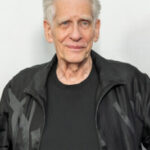Alfred Hitchcock

Alfred Hitchcock
Quick Facts
Biography
Alfred Hitchcock is one of the most influential filmmakers in cinema history, renowned for his mastery of suspense, psychological thrillers, and innovative storytelling.
Early Life and Background
Born on August 13, 1899, in London, England, Alfred Hitchcock grew up in a working-class family. His early experiences in East London shaped his fascination with themes of guilt, fear, and the darker aspects of human nature. Hitchcock was raised Catholic, and his strict upbringing often influenced the moral dilemmas and intense psychological drama found in his films.
Career and Rise to Fame
Alfred Hitchcock began his film career in the silent era, working as a title card designer and art director before transitioning to directing. His breakout came with ‘The Lodger: A Story of the London Fog’ (1927), which set the tone for his signature suspenseful style. Hitchcock moved to Hollywood in 1939, where he directed classics such as ‘Rebecca’, ‘Rear Window’, ‘Vertigo’, ‘North by Northwest’, and ‘Psycho’.
Hitchcock was a pioneer in using camera techniques to evoke emotion and tension. He popularized the “MacGuffin” plot device and was known for his meticulous planning, storyboarding each shot in detail. His cameo appearances in his own films became a beloved trademark among fans.
Achievements and Awards
Alfred Hitchcock’s career spanned over five decades, earning him the nickname “The Master of Suspense.” He received numerous accolades, including the AFI Life Achievement Award and knighthood from Queen Elizabeth II. Several of his films, such as ‘Psycho’ and ‘Vertigo’, are regularly ranked among the greatest movies of all time.
Though Hitchcock never won a competitive Academy Award for Best Director, he was honored with the Irving G. Thalberg Memorial Award for his contributions to filmmaking. Many contemporary filmmakers, including Steven Spielberg and Christopher Nolan, cite Hitchcock as a major influence.
Personal Life and Legacy
Alfred Hitchcock married Alma Reville, an accomplished film editor and screenwriter who was instrumental in his creative process. The couple had one daughter, Patricia Hitchcock, who occasionally appeared in her father’s films. Known for his dry wit and public persona, Hitchcock kept his private life relatively secluded.
Hitchcock’s legacy endures through his innovative approach to suspense, narrative, and film editing. His work continues to inspire new generations of filmmakers and audiences alike. For more on influential directors, explore profiles on Orson Welles and Stanley Kubrick.
Interesting Facts and Influence
- Hitchcock’s film ‘Psycho’ shocked audiences with its bold story and editing techniques.
- He was famous for his detailed storyboards and pre-visualization of every scene.
- Hitchcock often worked with recurring collaborators, including actors like James Stewart and Grace Kelly.
- His television series, ‘Alfred Hitchcock Presents’, brought his signature style into living rooms across the world.
Conclusion
Alfred Hitchcock’s impact on cinema is immeasurable. His unique vision, meticulous craftsmanship, and ability to keep audiences on the edge of their seats have cemented him as a legendary figure in film history. Discover more about the evolution of thriller films and the directors who shaped the genre by exploring related categories and featured creators.
Detailed Information
| Full Name | Alfred Joseph Hitchcock |
| Gender | Male |
| Religion | Catholic |
| Residence | Bel Air, Los Angeles, California, United States |
| Height | 5 ft 7 in |
| Marital Status | Married |
| Children | Patricia Hitchcock |
| Father | William Hitchcock |
| Mother | Emma Jane Hitchcock |
| Education | St. Ignatius College, London County Council School of Engineering and Navigation |
| Years Active | 1919–1976 |
| Known For | Film directing, suspense thrillers, 'Psycho', 'Rear Window', 'Vertigo', 'North by Northwest' |
| Major Achievements | AFI Life Achievement Award, Irving G. Thalberg Memorial Award, knighthood |
| Income Sources | Film directing, producing, screenwriting, television |



